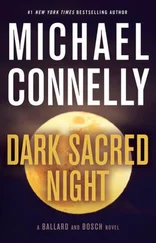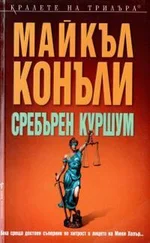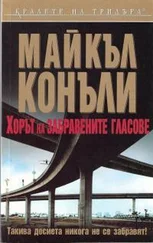“Let’s go, Haller,” Chan said from outside the tank.
“Coming,” I said.
After I returned to my seat at the defense table, I closed the file and looked over at the prosecution table. Berg and her cohort were no longer talking but looking straight ahead and waiting for court to resume.
Soon several members of the jury pool were returning to the courtroom. Maggie came back to the defense table and sat down.
“So, what are we doing?” she asked.
“I’m going to try to get sixty-eight kicked for cause,” I said. “And I’m hoping the state boots the teacher.”
“Why would they do that? He’s perfect for them. I know I’d want him if this was my case.”
I flipped open the file and pointed to the Post-its. Maggie was staring at them, putting the ruse together when the judge returned to the bench and called counsel forward.
At the bench, the prosecution went first.
“Your Honor, the People will use a peremptory challenge to dismiss number seventeen,” Berg said.
I jerked my head back like I had been slapped and then shook it in disappointment. I hoped I wasn’t overacting.
“You’re sure?” Warfield asked.
“Yes, Your Honor,” Berg said.
The judge wrote a note down on a pad.
“Mr. Haller, anything from the defense?” she asked.
“Yes, Your Honor,” I said. “The defense seeks the dismissal of juror sixty-eight for cause.”
“That cause being what?” the judge asked.
“Clear animosity exhibited toward the defense,” I said.
“Because she doesn’t like to be called ma’am ?” Warfield asked. “I don’t want to be called that either.”
“That and a generally combative tone, Judge,” I said. “She clearly doesn’t like me, and that is grounds for cause.”
“Your Honor, can I be heard on this?” Berg said.
“You don’t need to be,” Warfield said. “I’m denying the motion to dismiss for cause. My tally shows you have one last peremptory, Mr. Haller. You want to use it?”
I paused for a moment to consider. If I used my last peremptory, I would have nothing left while we sat the replacements for 68 and 17. I didn’t want the Trumper on the jury but it was risky being unable to control the last two slots on the panel. The alternates would be handled separately, with additional peremptory challenges.
“Mr. Haller,” the judge said. “I am waiting.”
I pulled the trigger.
“Yes, Your Honor,” I said. “We thank and excuse juror sixty-eight.”
“And that is using your last challenge?” Warfield asked.
“Yes, Your Honor.”
“Very well, you can step back.”
I knew it would be useless to ask for additional challenges. Berg would oppose it and the judge, with her hard-line adherence to her schedule, would be disinclined to be generous. I returned to my place at the defense table and decided to dwell on the one good thing that had just happened. I had managed to get rid of two potentially problematic jurors with one challenge. I would never know whether leaving my chart open to the potential spying eyes of the prosecution table had played a part in the dismissal of the schoolteacher, but I had to think it did. I listened as the judge thanked and dismissed him along with the widow of the war hero.
For the moment, the chef from the Hollywood Bowl was secure.
The judge quickly referred to a list of numbers randomly selected by a computer and called the next two prospective jurors into the box.
We had little more than an hour to finish.
Thursday, February 20
It was time. It was Thursday morning at 10 a.m. and the trial would now move past the preliminaries to opening statements from the lawyers. The jury and alternates had been seated the day before without additional angst from me. My gamble with my last peremptory had paid off in that the final candidates for placement on the jury had not raised any serious flags for the defense. The jury was sworn in and we were good to go.
I felt comfortable with the overall panel. There were no known prosecution bogeys and three members of the jury I actually thought tilted toward the defense side of the scale. In most trials you are lucky if you get even one.
Still, my comfort with the jury was offset by the knot in my stomach. I was fully recovered from the attack on the bus, but the tension of a sleepless night had carried through into the day. I was nervous. I had tried many cases and I knew that anything could happen. It wasn’t a comforting knowledge. I was fully prepared to engage in this battle, but I knew there would be casualties and I could not guarantee that the truth would not be among them. Innocent men were found guilty. I didn’t want to be one of them.
An opening statement is merely a blueprint of the case to come. My strategy was a third-party-culpability defense. That was a legal way of saying somebody else did it and I was either intentionally framed or the police were so incompetent that they bungled the case and framed me in the process. I was fully aware that it would be awkward and possibly off-putting for me to stand in front of the jury and espouse this line of defense. This was why I had assigned the opening statement to Maggie McPherson. I wanted her to point to me and summon all her fierceness when she said I was innocent and that the state did not have a case that would prove guilt beyond a reasonable doubt.
At the same time, I didn’t want Maggie saying much beyond that. When it came to opening statements, I was from the Legal Siegel school of law. He always said, save your powder, meaning less is more; don’t reveal your case or its surprises until it’s time to present your evidence. That’s when it mattered. Legal Siegel also said that opening statements were not worth spending much time on because they would soon be forgotten as the prosecution presented its case, followed by the defense.
There was the option of withholding the defense’s opening statement until the start of its case. I had taken that option on occasion in prior trials but I never liked doing it. I always felt it unwise to miss the opportunity to address the jury early on, no matter how briefly. Since we were starting this trial on a Thursday, I knew it would be six or seven days before the defense phase started, and that seemed too long to go without countering the state with my own view of the case.
I passed all this wisdom on to Maggie, though such advice was not remotely necessary for her. She had given and sat through more than her share of opening statements and already knew that less was always more.
However, this wisdom was apparently never part of Dana Berg’s training. She stood before the jury first and delivered an opener that lasted almost ninety minutes. I would have preferred to sleep through it but I had to carefully monitor it and take notes. An opening statement was a promise to the jury of what you will present during your case in chief. It was unwise to promise something and then not deliver it. That was why I took notes. I would keep a scorecard, and as the case progressed I would be sure to point out to the jury where the state had failed to deliver on the goods promised.
Berg started by detailing the night of my arrest and the discovery of Sam Scales in the trunk of my car. This was where she made her first mistake, telling the jury that they would hear from Officer Roy Milton about how a routine traffic stop — started when he saw my car had no license plate — led to the discovery of the murder victim.
I wrote her words down verbatim because I would use them against Officer Milton when he was brought into court to testify. There was nothing routine about the traffic stop or anything else that night.
At an early point in her statement, Berg interjected a note about Sam Scales, describing him as a small-time grifter who never lived a life on the straight and narrow.
Читать дальше
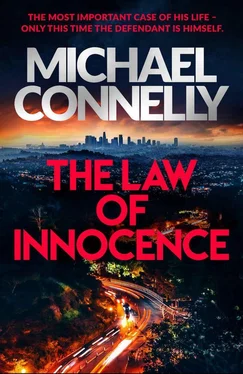

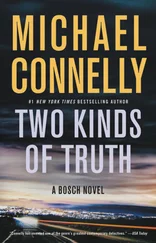

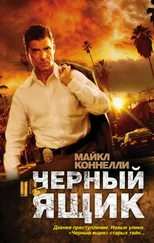
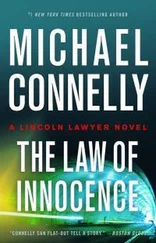
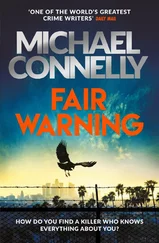
![Майкл Коннелли - The Night Fire [Harry Bosch - 22]](/books/405630/majkl-konnelli-the-night-fire-harry-bosch-22-thumb.webp)
